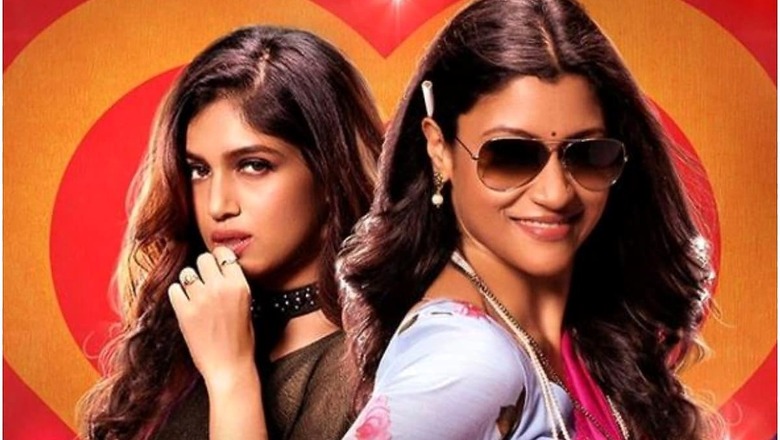
views
Director Alankrita Shrivastava’s latest film Dolly Kitty Aur Wo Chamakte Sitaare, starring Konkona Sensharma and Bhumi Pednekar, made me just sit in silence. The movie was so observing that I found myself memorising it even as I was watching it for the first time. The film is culturally specific to north Indian society, but within that, it gives space and breath for so many things that make up what it is to be a revolutionary and a feminist piece of art.
In modern Hindi cinema, fewer stories are told of women from marginalised communities or lower castes, and when they are, it is more likely that these narratives, knowingly or unknowingly, depict these women as manipulators or acting against the interests of other women. Very rarely do such stories demonstrate solidarity among women or their collaborative efforts which is necessary to address oppression and inequality. And that is why Dolly Kitty Aur Woh Chamakte Sitare is a very important film.
In ‘Dolly Kitty…’, Alankrita’s voice is passionate and moves easily between the personal and the political. She is at her strongest and most refreshing when she is rejecting stereotypes of women for being strong or superhuman. In her world, women are everyday people and are as flawed and vulnerable as any other human being, navigating treacherous territory, and often taking risks with no safety net.
Related: Dolly Kitty Aur Woh Chamakte Sitare Movie Review: This Working Class Heroines’ Story Hits At Right Spots
In Radha Yadav aka Dolly, Konkona lives the character of a middle-aged woman, dissatisfied in her clerical job, sex life, and struggling to adjust to her child’s different sexual inclinations than his biological gender. Whether it’s the emotional fear of humiliation, the social fear of being marginalised for what you want, or the existential fear of being discontented with life once the pursuit is over, Alankrita unabashedly depicts a volley of worries a married or a middle-aged woman navigates in her quest for pleasure through Konkona’s character.
On the other hand, via Bhumi’s Kajal, an ambitious woman from rural Bihar, Alankrita exposes a profound difference between what constitutes mainstream feminism and the urgent needs of women hailing from underprivileged backgrounds, where feminism is about access to quality education, safe neighbourhoods and a living wage, and is intersectional, so to speak.
The film’s narrative beautifully offers insight into how Kajal articulates her self-understanding in relation to the pressures she confronts while trying to find her feet in a big city. A scene wherein she tells her sister Dolly why she doesn’t regret working as a voice operator in a call centre where she seduces men over the phone or losing her virginity to a man who turns out to be a fraud is a testament to that.
But the film’s crucial message comes in the climax where an empowered Kajal uses her strength to make sure things are better for her community, as opposed to just for her, when she goes back to her bosses and requests them to not shut the office and also suggests an idea to launch a new Red Rose app for women. She becomes an ally to other women like her, thereby opening the door of opportunities for them.
Furthermore, what makes Alankrita’s women characters stand out from the rest– be it in Dolly Kitty Aur Woh Chamakte Sitare or Lipstick Under My Burkha– is the fact that they are always ready to accept all the consequences of their choices. And Alankrita shows it without elevating them into saintly victimhood.
Films like Dolly Kitty Aur Woh Chamakte Sitare help one see more clearly how one can use whatever little privilege they have to amplify the voices of those who are lesser privileged. It’s also a very important work for those who think they are allies to women to better understand the systems and structures in place that impact women from lower strata of society to survive and thrive.
It is not just a film but is also a movement for women who are usually left out of discussions relating to feminism or sisterhood.




















Comments
0 comment